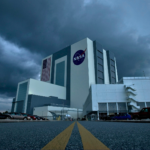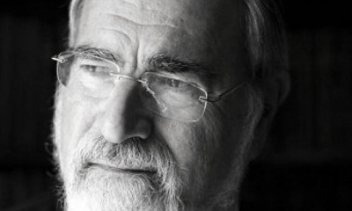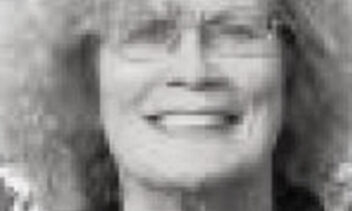I am not much of a scientist. The last time I was in a formal class of physics or chemistry was in 10th and 11th grade. But I have always been fascinated by the history of science and mathematics. I never excelled at calculus, but I have always been enchanted by books that discuss the history of calculus, as well as infinity and science in general. Don’t ask me to do any calculations, but I’m happy to discuss the implications of the interaction between math and science on religious ideas.
This came to the fore when I was studying in Ner Yisroel. My friend, Dovid Weinberger, knew I was interested in how scientific and mathematical ideas differ from religious ideas and the system of Torah in general. He encouraged me to reach out to his Uncle Shmuel, a renowned mathematician and learned Jew, at the University of Chicago. We began corresponding. It’s hard to remember what exactly we corresponded about—after hours of searching, it seems the emails got deleted from my old Yahoo email account. I even called Dr. Weinberger and while he remembers our conversations, he couldn’t find the correspondence either. But I do remember the basic thrust of my questions. I wanted to understand how a seasoned mathematician relates to the rabbinic law. There is a rigor and a sequentiality to math that I always found intimidating and maybe even a drop more “true” than halakhic and Torah reasoning. What implications, if any, I remember asking him, does Gödel’s incompleteness theorem have for the system of halakha? As a mathematician, what do you think when we say that the wisdom of Torah is infinite? Are your math colleagues smarter than rabbis? How does the development of Torah differ from the innovations of science?
The joy of life is not found pitting the books against one another, but having them both open—text and commentary—and discovering the sublime joy of finding purpose in this mysterious world.
Overall, looking back I think there was an element of immaturity involved. When you’re younger, you tend to think that the smartest person in the room—the one with the highest SAT scores, the one in the higher level math class—is probably the correct person in the room. We tend to think that the discipline that attracts people with the highest IQ’s probably has all the right answers on how to live your life. It reminds me of an exchange between Stephen Colbert (a devout Catholic) and Ricky Gervais (an agnostic atheist). Ricky poses the following thought experiment:
Science is constantly proven over time. You see, if we would take something like fiction or any other holy book and destroyed it—in a thousand years time it wouldn’t come back just as it was. But if you took every science book and every fact and destroyed them all—in a thousand years they would all be back because every test would be the same result.
It’s a fascinating exchange to watch in whole.
The crowd applauds and Colbert is just left saying, “that’s good—that’s really good.” Now I don’t think this thought experiment does any sort of damage to religious thought and commitment, but I do think it is worth thinking about. Science does have a grounded sequentiality that could be reconstructed, whereas religious ideas are tethered to human experience and are subject to more evolution. Let’s take revelation out of the equation and just focus on the development of the Oral Law or mysticism—certainly it would be harder to imagine reconstructing these disciplines, as opposed to math and science, which with enough time would seem to be able to organically be reconstituted. This distinction, however, may actually be a praise of sorts for the value of religion. Maybe disciplines untethered to human experience and human input, however rigorous and however valuable, are also limited in their ability to actually inform and provide purpose to human experience. Maybe the sober detachment of science poses limits on what guidance it can, in fact, provide. That, of course, is not a condemnation of science, just as I don’t read this thought experiment as a condemnation of religion. They each relate in different and important ways to our personal and collective history.
The first scholarship I ever shared in print was an article I wrote for The Seforim Blog entitled, “The World as a Book: Religious Polemic, Hasidei Ashkenaz and the Thought of Reb Zadok.” It’s about an analogy: the world as a book. Rav Tzadok (1823-1900) explains that he found an analogy that he admits did not come from Jewish sources. He writes, “God created a book, and that is the world, and the commentary (on the book), and that is that Torah.” The rest of the article is my exploration into finding the origins of the analogy. For centuries, people looked at the “Book of Nature” and the “Book of Scripture” as two different books—Rav Tzadok reframed their interaction. Nature was written as a book, but to meet and understand the author, you need to read the commentary. Like any literary exercise or DVD extras (remember those?), commentary explains the purpose—maybe they’re discussing a scene from a movie, an edit from a television show, or the choices an author makes about a character. But if the Torah can, in fact, be seen as a commentary, it is providing the purpose behind the magnificent and wondrous scientific world we each see.
And I think this imagery is what makes thinking about science and religious ideas together so captivating. Everyone has two books that animate their lives. We have a book of nature—our natural abilities, the family we were born into, the color of our eyes and hair. There is little we can do to change the book of nature—our task is merely to describe it. But we also have a book of scripture. Scripture is made to interpret and in our lives, we have the commentary that interprets, explains, and provides depth of meaning to all of our choices, decisions, and purpose. The joy of life is not found pitting the books against one another, but having them both open—text and commentary—and discovering the sublime joy of finding purpose in this mysterious world.








